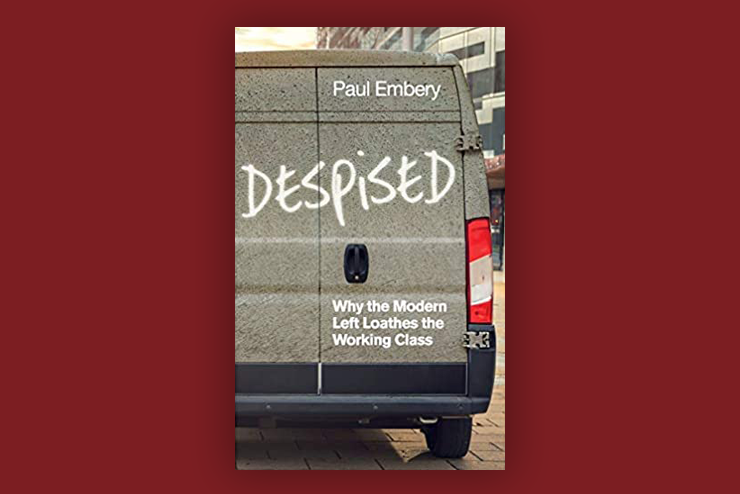Despised: Why the Modern Left Loathes the Working Class, by Paul Embery (Polity Books; 216 pp., $64.95).
Paul Embery, a firefighter and trade unionist, has written a searing critique of Britain’s modern Labour Party. He believes Labour has betrayed its core constituency, the working class. Rather than reaching out to that traditional base, the current party is “comprised largely of urban middle-class liberals, students and social activists” and has adapted its policies to appeal to this demographic.
Embery highlights three issues that divide the working class from the party that claims to represent them: Brexit, immigration, and what Embery calls “Liberal Wokedom.” The Brexit referendum illustrated the massive gulf between ordinary people and the British political class. While 64 percent of constituencies voted to leave the European Union, only 159 of 650 MPs did. Support for Brexit was particularly strong among the working class and those on low incomes. Working-class communities in northern England were some of the most strongly pro-Brexit. Yet the response of much of the left to the Brexit vote was to show unbridled contempt for those who voted to leave. Leavers were called “thick,” “racist,” and “gammon.”
In his chapter on immigration, Embery provides an interesting history of his East London home in Barking and Dagenham. Once a thoroughly British working-class community in which “the shared backgrounds and cultural familiarity fostered a deep sense of community and cohesion,” the borough has now been transformed beyond recognition by mass immigration.
Embery recounts that on taking his children to a busy public park, of all the many voices and conversations he overheard, “literally nobody” spoke English. But the dismay felt by the native working-class community at this transformation was not treated with any sympathy by their Labour representatives, who inevitably presented their reaction as driven by “innate racism and xenophobia.” The left, says Embery, needs to have a “brutally honest conversation” about immigration, especially its impact on working-class wages.
Embery is also highly critical of the excessive social liberalism of the British left. He is scathing in his assessment of the way the political establishment forced through legislation for same-sex marriage and the subsequent demonization of all who opposed this. He laments the rise of identity politics and thoroughly critiques the “diversity is our strength” mantra.
While Embery is clearly a man of the left and his strong support for socialist economic policies may be unappealing to conservatives, it is nonetheless enlightening to find that there are still a few on the left who hold basically patriotic and socially conservative views.

Leave a Reply